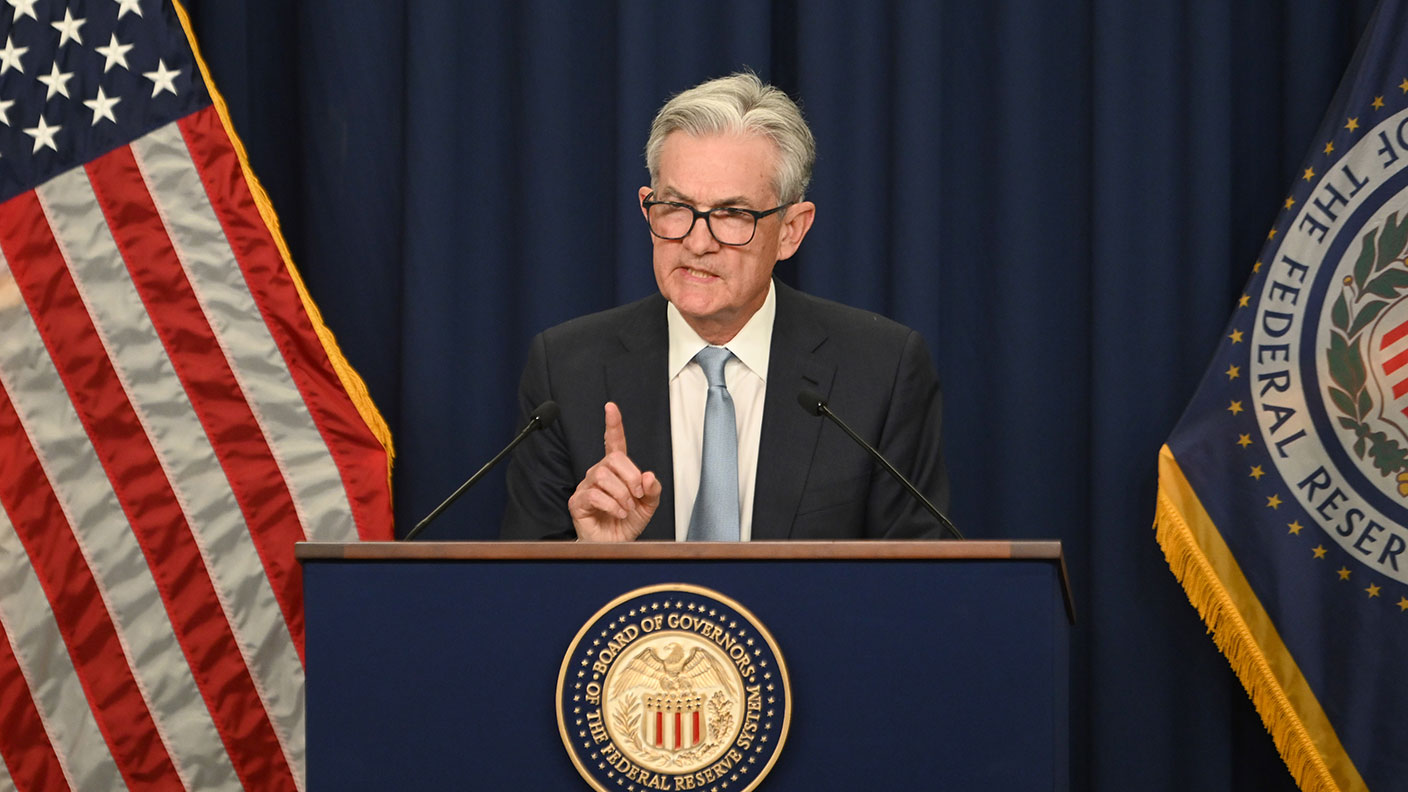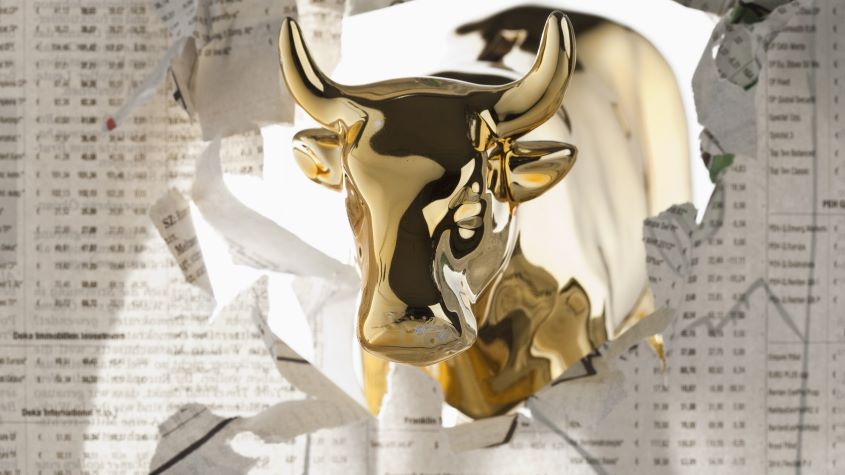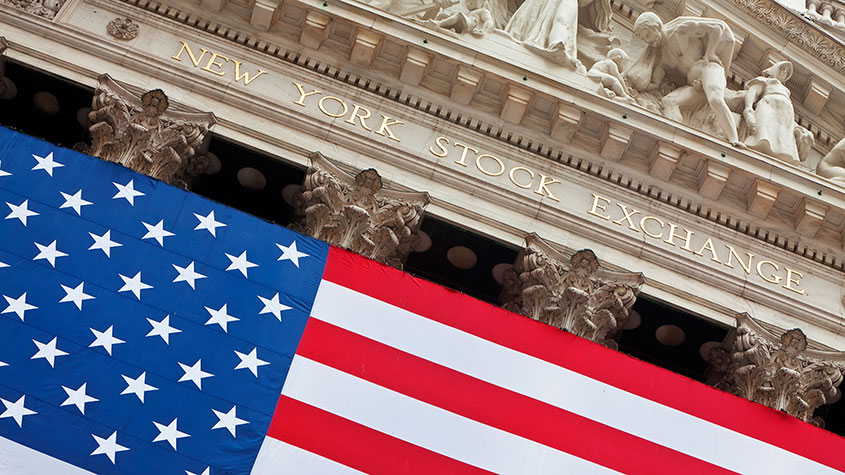The Fed really is fighting inflation – so don’t expect an early end to the bear market
In an attempt to contain raging inflation, the Federal Reserve has raised US interest rates by 0.75 percentage points. And it’s going to keep on raising them till something breaks, says John Stepek.


Get the latest financial news, insights and expert analysis from our award-winning MoneyWeek team, to help you understand what really matters when it comes to your finances.
You are now subscribed
Your newsletter sign-up was successful
Want to add more newsletters?

Twice daily
MoneyWeek
Get the latest financial news, insights and expert analysis from our award-winning MoneyWeek team, to help you understand what really matters when it comes to your finances.

Four times a week
Look After My Bills
Sign up to our free money-saving newsletter, filled with the latest news and expert advice to help you find the best tips and deals for managing your bills. Start saving today!
The “Fed put” is dead.
Or at least, the stock market level at which the Federal Reserve, the US central bank, will intervene with the soothing balm of looser monetary policy, has been lowered substantially.
That much is very very clear. If anyone had any doubts, yesterday’s monetary policy decision should have set them right.
MoneyWeek
Subscribe to MoneyWeek today and get your first six magazine issues absolutely FREE

Sign up to Money Morning
Don't miss the latest investment and personal finances news, market analysis, plus money-saving tips with our free twice-daily newsletter
Don't miss the latest investment and personal finances news, market analysis, plus money-saving tips with our free twice-daily newsletter
The Federal Reserve isn’t playing games anymore
Yesterday, the Federal Reserve raised interest rates by three quarters of a percentage point. It’s now targeting a Federal Funds rate of 1.5-1.75%.
When you think about how unthinkable that would have been just a year ago, it’s staggering. Most investors were quaking at the notion of a quarter point rate rise.
It shows you how rapidly things change, and how you just can’t take anything for granted.
We’ve seen the Nasdaq drop by almost a third and the S&P 500 lose a fifth, and the Fed has not batted an eyelid. The cryptocurrency sector is collapsing under the weight of its own contradictions, and the Fed cares not a jot. The US dollar is getting to levels where some are even talking (prematurely, I’d have thought) about a new Plaza Accord. The Fed’s reaction? Stick this 0.75 percentage point rate hike in your pipe and smoke it, sonny.
Inflation really is the enemy this time, and while the Fed cannot magic up new barrels of oil and cannot stop the war in Ukraine and cannot unstick supply chains and cannot change Covid policies in other nations, it can do one thing: it can raise interest rates.
And one point I would make is that the Fed deciding to give no quarter on monetary policy actually might put pressure on governments – the US government in particular – to do something practical about the energy supply problems.
Anyway, markets actually took the news in good stride at first. They’d been primed for the scale of the rise. The Fed had (almost certainly) leaked the decision to favoured reporters at US financial newspapers so as not to scare the horses.
The Fed probably did this because last week’s inflation figures were so brutal that it felt it had no choice but to raise by 0.75 percentage points rather than the forecast 0.5, but it also wanted to give markets a day or so to get used to the idea.
That’s the main reason US stocks are now fully in bear market territory. Anyone who tries to pretend to you that the loose monetary policy of recent years – make that decades – had nothing to do with the epic rally in US stocks in particular, should take a look at how markets have reacted to the withdrawal of that easy money.
It’s blatantly the case that interest rates form a key variable in valuing all assets, and that the Fed has a huge influence on interest rates. You don’t have to be a gold bug or a hard money advocate or a libertarian to see this.
The Fed will raise interest rates until something breaks – but what?
Anyway, so what’s next? Well, having rebounded on relief that at least the Fed didn’t go for the full percentage point hike, stocks are looking distinctly queasy again this morning.
The reality is that the Fed is on a course to raise rates until something breaks. Or rather, until something important breaks – it’s already broken the cryptocurrency market (or to be more specific, the “defi” market).
The stockmarket can fall and that’ll make people poorer, but it’s not going to destroy the financial system. Even the US housing market probably isn’t as systemic a risk as it once was. Again, it’ll have a nasty anti-wealth effect, but that’s kind of the point. A recession isn’t fun but it does crimp demand and enable the build-up of supply of everything from labour to goods.
So in the end, that “something important” may well end up being a foreign nation’s sovereign bond market. But we’ll just have to wait and see on that one.
We’ve said this before, but once upward momentum stops carrying stocks higher, then you have to start relying on something more concrete. That “something” is fundamentals.
When a bear market breaks out – and let’s not mess about, we are definitely in a bear market now and clearly have been for some time – you almost always revisit “fair value” and then go all the way down to “cheap”.
Those two measures are subjective, just like everything else in financial markets. But they are somewhat less subjective than the sorts of scenarios used to justify ever-rising prices during the boom periods.
Really we’re talking about the return of “reversion to the mean”. The mean might be a bit higher than it has been in the past; then again, it might well turn out not to be. The simple truth is that our data series for stockmarkets and financial markets generally aren’t long enough to create a sample size that can give a great deal of confidence on what might happen in any given “average” crash.
But overall, the point is that a bear market can last for longer and drive prices down further than you would ever have expected. So don’t be surprised if we keep going down. And as I’ve already said, don’t panic.
The other question is: what does it mean for the Bank of England? We’ll find out very shortly.
At first glance, all else being equal, it probably puts a bit of pressure on for monetary policy to be a bit more aggressive than it otherwise would have been. As the gap in interest rates between the US and the rest of the world rises, so currency considerations start to become a concern. The pound is already looking very weak against the dollar.
But it’s a tough call. Being weak against the dollar is not a pound-specific problem, for a start – it’s an issue most currencies are facing at the moment.
There’s also the question of recession. If markets think that the Bank of England is aggressive enough to trigger a slowdown while simultaneously not being able to do very much about energy prices and the like, then that’s not going to be seen as particularly positive either.
On balance, I’d guess they’ll err on the hawkish side. But let’s see what happens.
Get the latest financial news, insights and expert analysis from our award-winning MoneyWeek team, to help you understand what really matters when it comes to your finances.

-
 Can mining stocks deliver golden gains?
Can mining stocks deliver golden gains?With gold and silver prices having outperformed the stock markets last year, mining stocks can be an effective, if volatile, means of gaining exposure
-
 8 ways the ‘sandwich generation’ can protect wealth
8 ways the ‘sandwich generation’ can protect wealthPeople squeezed between caring for ageing parents and adult children or younger grandchildren – known as the ‘sandwich generation’ – are at risk of neglecting their own financial planning. Here’s how to protect yourself and your loved ones’ wealth.
-
 Is it different this time for Japanese stocks?
Is it different this time for Japanese stocks?Analysis Nikkei 225 Index has jumped 19.8% this year, and there are signs the rally could continue.
-
 As China reopens, why pick an income strategy?
As China reopens, why pick an income strategy?Advertisement Feature Yoojeong Oh, Investment Manager, abrdn Asian Income Fund Limited
-
 Is Japan the best market to invest in now?
Is Japan the best market to invest in now?Opinion Japan puts Western economies to shame and offers good value for both equity and bond investors, says Max King.
-
 The highest yielding S&P 500 Dividend Aristocrats
The highest yielding S&P 500 Dividend AristocratsTips Dividends are a key component of investment returns in the long-term. A portfolio of dividend aristocrats is a great way to build wealth and a sustainable income stream.
-
 2023 will be a bumper year for stocks. Here’s how to play the rally
2023 will be a bumper year for stocks. Here’s how to play the rallyTips Dominic Frisby explains why he thinks the market rally could have further to run in 2023 despite macroeconomic headwinds
-
 A new dawn for Asian markets?
A new dawn for Asian markets?Advertisement Feature James Thom, Investment Manager, abrdn New Dawn Investment Trust plc
-
 China’s post-covid investment boom off to a slow start. Should you still invest in China?
China’s post-covid investment boom off to a slow start. Should you still invest in China?Advice Investors are no longer bullish on the China shop but the gloomy consensus on Beijing’s economy might be unfair. Should you invest in China?
-
 Stock market crash? This time it’s (slightly) different
Stock market crash? This time it’s (slightly) differentOpinion The bears expecting a stock market crash have got it wrong, says Max King.